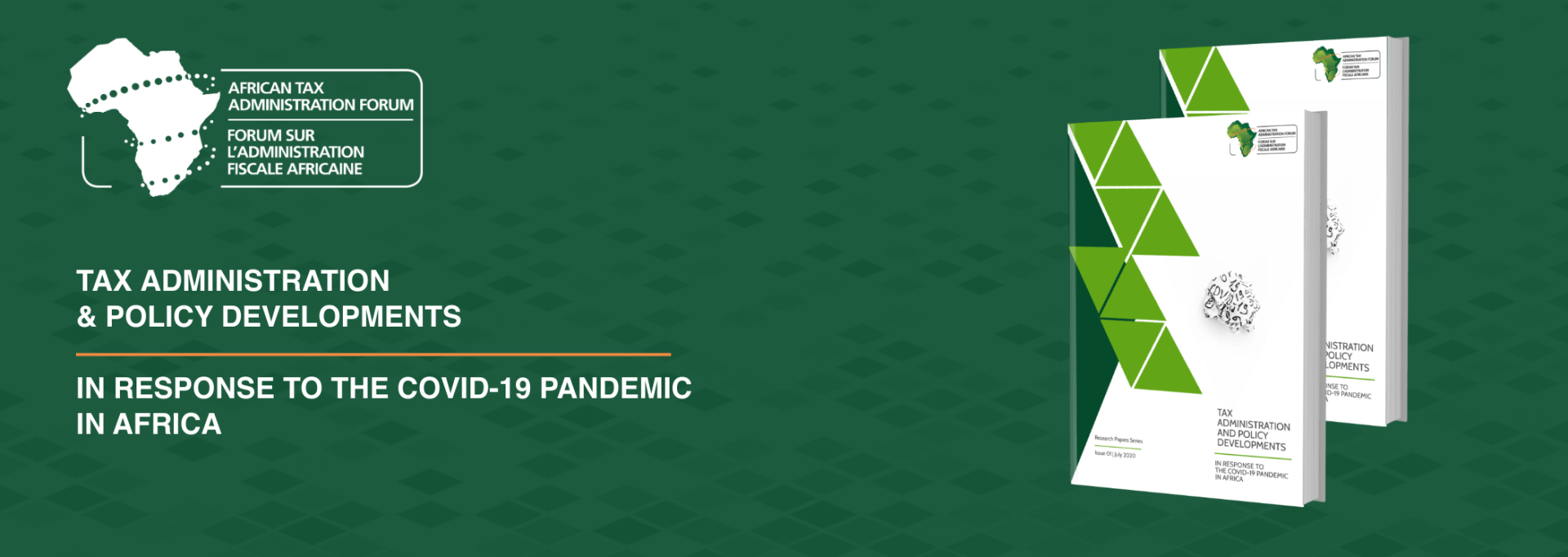The twin challenge of granting tax relief and meeting revenue targets: Measures African tax administrations should consider during and post the COVID-19 pandemic.

22 July 2020 , Pretoria, South Africa– The African Tax Administration Forum (ATAF) has today released a research policy paper which deals with the impact of the COVID-19 pandemic on African countries and recommends measures that tax administrations on the continent should consider to strengthen and safeguard revenue collections.
The policy paper titled Tax Administration and Policy Developments in Response to the COVID-19 Pandemic in Africa looks at six key aspects of COVID-19 interventions relating to African tax administrations, namely: tax-relief measures; non-tax relief measures; business continuity; enterprise risk management; tax fraud and customs revenue. It also provides suggestions on how donors and development partners may intervene in assisting African tax administrations during and post the COVID-19 global pandemic.
According to the Executive Secretary of ATAF, Logan Wort, “ Tax administrations will continue to deal with the aftermaths of COVID-19 years after it has ended. It is therefore imperative that our support to Members also focuses on equipping them with relevant Tax policy and administration tools for a successful post-COVID-19 recovery. This report is an important step in this direction ”.
Among the measures it recommends that tax administrations consider to maximise revenue collection when business returns to the ‘ new normal ’ include:
- The vigorous enforcement of debt collection, auditing, and other assurance processes.
- A special focus on large taxpayers with huge tax arrears and extra vigilance regarding the greater risk of large taxpayers declaring excessive losses attributed to the slowing of business due to the pandemic.
- Closer collaboration between tax administrations and tax policymakers in endeavours to resuscitate the fiscal system.
Highlighted is the fact that tax measures were the most important and widely used tools that governments employed in response to the COVID-19 pandemic. Studies have estimated that of 36 countries surveyed in Africa, each country was spending an average of 1.07% of its GDP to respond to COVID-19 pandemic –this amounts to a total of over US$ 37.8 billion for all the 36 countries.
The paper highlights that from the 23 countries whose data was available, a total of 204 tax-relief measures were put in place in response to the COVID-19 pandemic. Top 3 measures with the highest frequencies were extension of filing and payment deadlines, enhancement of business cash-flow and support to health system. There were also 121 non-tax relief measures classified into three groups, namely: maintaining health; support to business and support to households.
Regarding Enterprise Risk Management and Business Continuity, the paper unveils that some tax administrations are still falling short, both in the areas of putting them in place and implementation. Estimates based on 18 member countries who supplied customs data revealed that around US$500 million was lost due to the pandemic, in the 3 months period from February to April 2020.
Tax Administration and Policy Developments in Response to the COVID-19 Pandemic in Africa is available on the ATAF website.
For more information:
Dr Ezera Madzivanyika – Research Manager
Email: emadzivanyika@ataftax.org
Telephone: +27 (0)63 689 3894
Romeo Ella – Communications manager
Email: rnkoulouella@ataftax.org
Telephone: +27 (0)79 790 2960
Download the paper Here.
The blog post is available in French and Portuguese.










